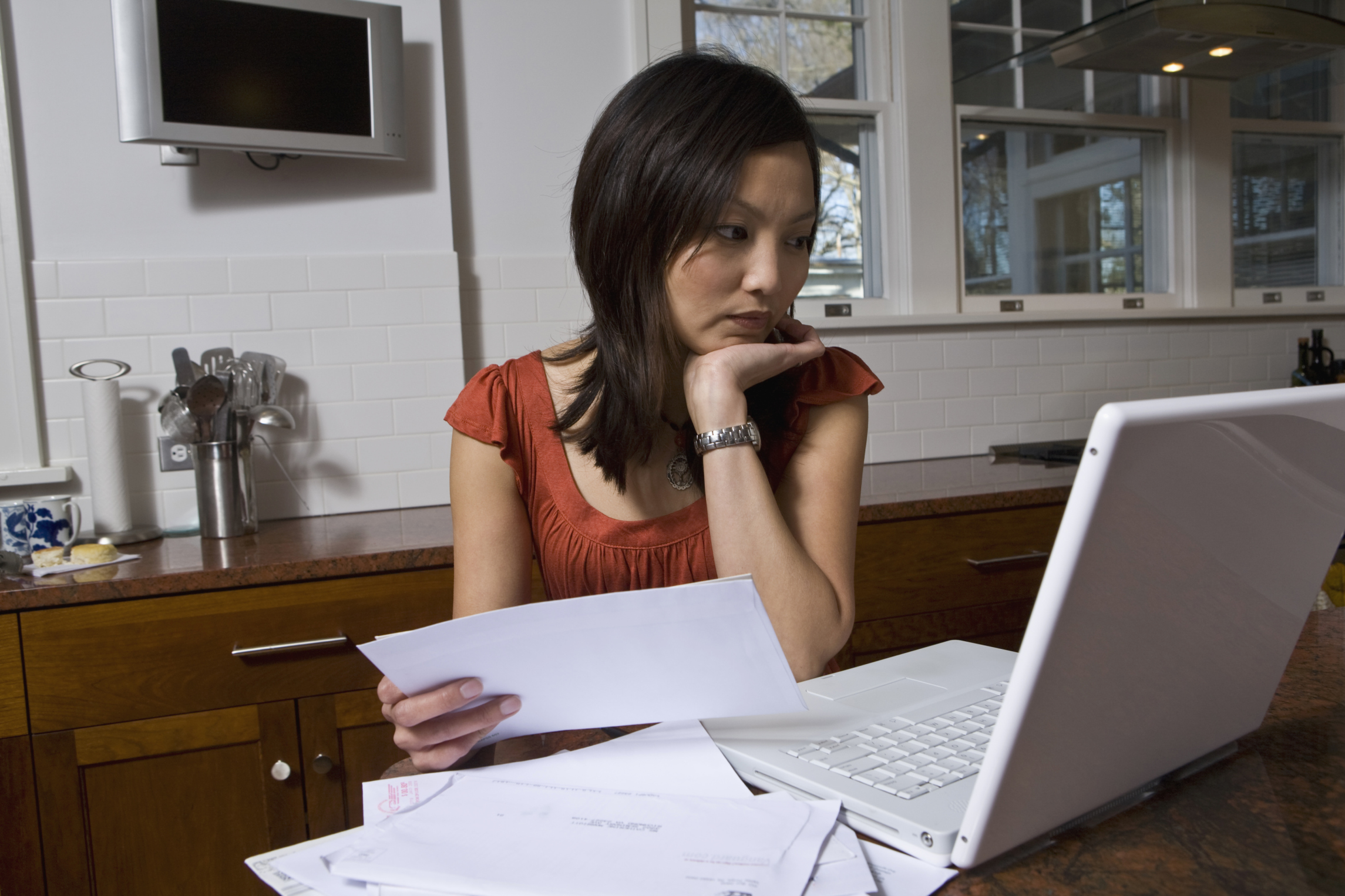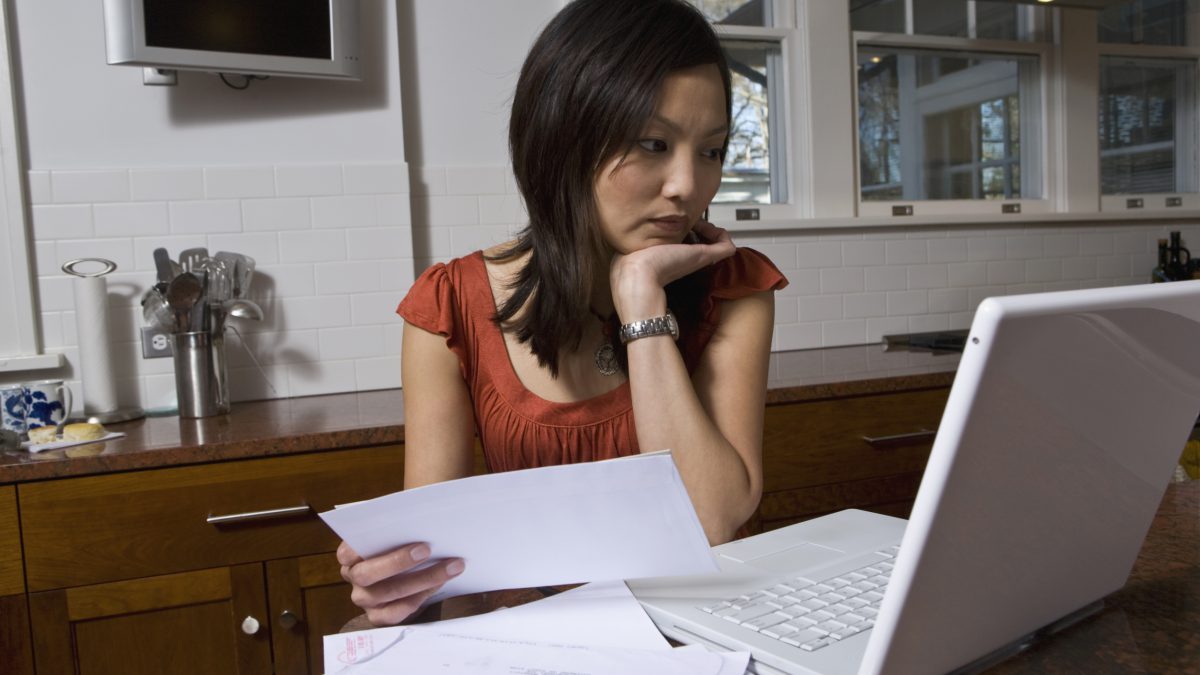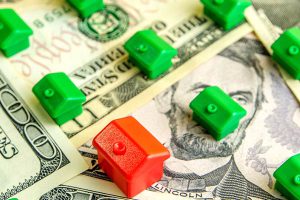How To Buy A House With Little Or No Credit

Even though being debt-free can make you a better credit risk, getting a mortgage when you have little or no credit and don’t have a credit score isn’t easy. “Mortgage lenders are still conservative,” explains Minnesota-based real estate agent Lorraine Smith. “Instead of looking for good risks, many of them are looking for no risks.” With this in mind, budgeting to buy a house means that you may need to plan for a large down payment to make the loan feel safer for the lender.
What You Need
The first step in building a budget is to figure out what you’ll need to budget for. The process starts with determining what you want to spend on a house. Once you’ve done that, your real estate agent or mortgage broker can help you estimate what your loan will cost. If you don’t have a credit score, you will probably need to make a 20 percent down payment to buy the house. You may also need to pay closing costs. For example, if you’re going to buy a $175,000 house, you’ll probably need at least $35,000 saved for your down payment. “Having a large down payment may slow down the process of getting your house, but it will save you money in the long run, since you won’t have to pay for private mortgage insurance,” explains Smith. Private mortgage insurance, which is usually required on loans with less than 20 percent down, covers the lender’s risk of making a loan with a minimal down payment.
Budgeting for Payments
Once you know how much you need to borrow (your purchase price plus your closing costs less your down payment), you can estimate your monthly cost. For instance, if you’re buying a $175,000 house and paying $5,000 in closing costs, you’ll borrow $140,000 after putting 20 percent down and paying the costs. Without a credit score you might not be able to get a 30-year mortgage, but you should be able to get a 15-year one. When you estimate your payments, remember to include the property taxes and homeowner’s insurance that you’ll be paying. For example, if you end up with a 15-year mortgage at 4.5 percent, its payment will be $1,070.99. If you have a $1,500 homeowner’s policy and $2,000 per year in property taxes, it works out to a monthly payment of $1,362.66.
Cushioning Payment Shock
It’s wise to immediately start saving the difference between your monthly rent payment and your projected mortgage payment. This serves two purposes. First, getting used to spending this much every month will save you from experiencing payment shock when you have to start paying your new, higher mortgage payment. If your rent is $800 per month, you’ll be putting aside an extra $562.22 to do this. Second, this saving helps you to build up savings toward your down payment.
Smith tells her clients, “There’s more to home ownership than making mortgage payments. Your home also needs maintenance and care and may have additional monthly bills.” To this end, it’s also wise to set aside an extra couple of hundred dollars per month to help prepare you for these costs. This will also speed up the rate at which you can save for your house.
Adjusting Your Budget
If you need to save for a 20 percent down payment, you may need to do more than just set aside the difference in your payment. If you haven’t already built a household budget, sit down and analyze all of expenses and your income. You may be able to save money by cutting out unnecessary expenses, like buying movies that you could rent or having your communications services from different companies when you could save with a bundle. One area where you shouldn’t skimp is your tax-deferred savings plans. The Internal Revenue Service will let you pull $10,000 out of your IRA penalty-free to help with the cost of your house if it’s your first one. “If you’re buying the house with someone, each of you can pull $10,000 out, giving you $20,000,” says Smith.
The FHA Option
While the budgeting process is the same, taking out a mortgage guaranteed by the Federal Housing Administration may give you the ability to buy with as little as 3.5 percent down. “You’ll have to shop around to find a lender that knows how to approve a buyer without a credit score,” explains Smith, “but it is possible.” FHA rules specify that if you have a good payment history on the bills that you do pay – like rents, utilities and the like – that stretches for at least 12 months, you can be eligible for an FHA loan.
The FHA will require you to have at least two months’ worth of payments in reserve, though, and your loan payment cannot be more than 31 percent of your gross monthly income. While an FHA mortgage will offer a 30-year term, you’ll be borrowing more money and you’ll also have to pay a mortgage insurance premium. In other words, your payments might not be much lower than the 15-year loan payment.
Quicken has made the material on this blog available for informational purposes only. Use of this website constitutes agreement to our Terms of Use and Privacy Policy. Quicken does not offer advisory or brokerage services, does not recommend the purchase or sale of any particular securities or other investments, and does not offer tax advice. For any such advice, please consult a professional.



